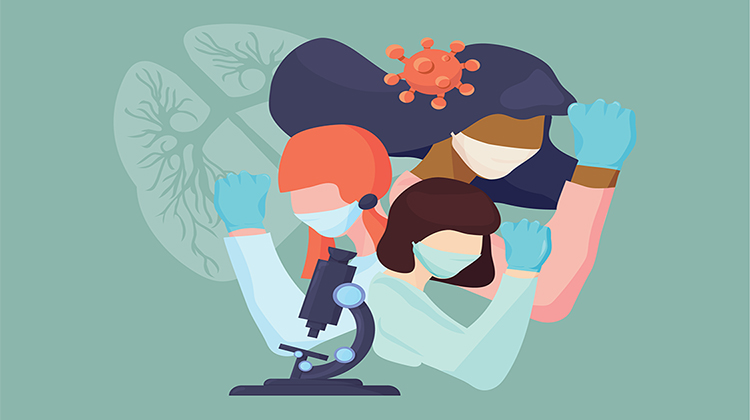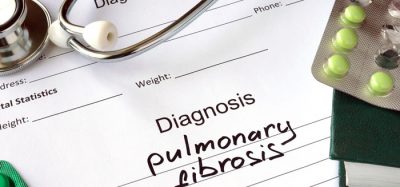Women in STEM with Charlotte Owens
Posted: 16 August 2024 | Charlotte Owens (Organon) | No comments yet
As Senior Vice President and Head of Global Medical Affairs & Outcomes Research at the global healthcare company Organon, Charlotte Owen’s extensive work is advancing women’s healthcare and overcoming health inequities.


Can you tell us about your journey in the field of STEM and the challenges you encountered along the way?
I grew up in California where I developed a natural curiosity to understand how a living organism functions. Majoring in physiology in college allowed me to nourish this interest, and I knew medicine would be my path as it enabled me to learn the structure and function of the human body. After medical school and residency I decided to dedicate my life to women and specialised in obstetrics and gynaecology. I’ve been a practicing board-certified obstetrician-gynaecologist (OB-GYN) for over 20 years and I’m deeply passionate about sustainable equitable health.
Many people are surprised to hear that up to 80 percent of what determines a person’s health occurs before they step into any health facility. I have not only seen this as a practicing physician, but like too many, I have experienced health inequities – and unfortunately continue to do so. These social drivers that influence our wellbeing include race, gender and sexual orientation, as well as income, zip code, and even the spelling of your name. This shows one of the most urgent issues to solve is reducing health inequities, which mimic broader inequities in our society. Put another way, how can we provide social care? Social care means empathetically considering the patient as a whole person, including their health needs today and their journey outside of the doctor’s office.
I joined the pharmaceutical industry to leverage my passion and hands-on clinical experience to care for people all over the world by bringing a unique perspective to drug and device research and development. Currently, I’m the Senior Vice President and Head of Global Medical Affairs & Outcomes Research at Organon, a global healthcare company created to improve the health of women throughout their lives. Here, I oversee the medical strategy for both existing products and those in our development pipeline, including outcomes research. For more than a decade, I have also served on the faculty of Morehouse School of Medicine as an Adjunct Assistant Clinical Professor of Obstetrics Gynecology. My goal is to foster a more inclusive healthcare system that closes the gaps in women’s health—an area that desperately needs more attention, innovation and investment.
What inspired you to pursue a career in STEM, and how did you overcome any obstacles or biases you may have faced?
Growing up in Oakland, California, I experienced and witnessed first-hand the impact of health inequities and disparities on me and my own community. I had a profound encounter with a physician during a challenging health condition that affected my family. He told me I could be a surgeon who restored health to people like he did for my family. I was introduced to the subject of physiology in high school and went on to major in it at the University of California, Davis.
In college, I encountered many situations that shaped my thoughts about inequities and the social drivers of health. Even in a nurturing college environment, I was confronted by people who didn’t want to partner with me in labs and introduced me to the Regents of the University of California vs. Bakke ruling as the basis for their feeling that I didn’t belong. Fortunately, my academic advisor guided me through my studies and introduced me to Clinica Tepati, a non-profit student-run clinic in Sacramento, CA. I spent my time volunteering at this clinic so I could stay focused on why I wanted to pursue medicine. This experience cemented my determination to address the unmet needs of underserved communities and to be a provider of quality healthcare to all humans.
I graduated with my BS in physiology and later attended the University of Michigan Medical School. Through my medical studies at the University of Michigan and my residency at Henry Ford Hospital in Detroit, I gained a deeper understanding of the social determinants of health, including how much of what determines our health occurs outside the healthcare system, the role of providers and healthcare systems in addressing these issues to sustainably move people towards health, and I became committed to pursuing a career where I could help drive sustainable change.
Could you share an example of a specific project or research that you have worked on and how it has contributed to advancements or improvements in your field?
Social and structural hurdles to quality care, including reproductive care, remains one of the greatest challenges faced by women today. These barriers stem from a variety of reasons, including high cost, medical mistrust, pharmacy and provider access, historical inequities and racial discrimination. An estimated 19 million women live in contraceptive deserts and nearly 50 percent of pregnancies in the US are unplanned.
At Organon, we’re focused on providing access to targeted solutions, ranging from large-scale global collaborations to supporting community-led interventions, to reducing unplanned pregnancies and empowering women and girls when it comes to their reproductive health. Our Her Plan is Her Power initiative includes global grant programmes, funding and product donations, and partnerships with organisations like Direct Relief and Power to Decide that support community care and provide resources and education to advance sexual and reproductive wellbeing for women across their life span. I visited several clinics that we supported through this programme around the US, observing the impact holistic, community-focused care can have on the people who need it most.
During my visits, I met dynamic teams of patient advocates, nurse practitioners and community health workers at their who shared stories about barriers to healthcare access and health education in their community, including a patient who came in with abdominal pain to find out she was six months pregnant and another patient going through menopause who was receiving women’s healthcare services, including a comprehensive check-up, for the first time. These visits reinforced the importance of provider representation and leadership on improving patient outcomes. Engaging stakeholders is the key to the success and sustainability of any community-led programme; I heard this time and again while at these clinics, and I can’t underscore enough how critical building trust with the community is to the success of these types of interventions.
What potential future applications or implications do you foresee based on your work?
We need to work together across the healthcare ecosystem to create solutions that holistically address women’s health, considering the influences that impact our wellbeing within and beyond the healthcare system, like economic stability, education and geography. In the future, I hope women’s health continues to take centre stage in conversations on health and wellness as we work to break down some of the barriers and biases that persist.
To deliver innovation, improve access and expand choice in women’s health, we must nurture a vibrant collective of like-minded partners that can tackle these challenges in new ways while promoting access. That means partnering across the healthcare ecosystem and including patient voices at all stages to improve healthcare, provide agency to patients, close the data gap for diverse populations in medical research, and focus efforts to minimise health disparities; all of which will enhance health equity for all in the longer-term.
If I had to leave you with a key takeaway, it’s this: if there’s an issue in the community, the solution is there too. We must continue to listen to those we serve, starting with those whose voices are rarely heard.
As a woman in STEM, what unique perspectives or strengths do you believe you bring to your work?
Having female leaders in STEM is crucial for several reasons:
- Promoting gender equality and inclusion:
Research shows that having women in leadership positions is essential for promoting gender equality and advancing diversity and inclusion in STEM fields. When women hold leadership roles, it sends a powerful message that STEM is not limited to any specific gender, encouraging more women to pursue careers in these disciplines.
- Driving innovation and creativity:
Companies with gender-diverse leadership teams tend to be more innovative, creative and profitable. Diverse perspectives lead to better problem-solving and more robust decision-making processes. Female leaders bring unique viewpoints and approaches, which can contribute or lead to breakthroughs and novel solutions.
- Serving as role models and mentors:
Female leaders inspire and mentor aspiring professionals, especially young girls and women interested in STEM. Representation matters, too. When girls see successful women in STEM, they are more likely to believe they can achieve similar success. Female leaders can provide guidance, encouragement and practical advice to those entering STEM fields.
- Contributing to game-changing innovations:
Throughout history, exceptional women have made significant advancements in STEM subjects – from Rosalind Franklin’s contributions to understanding of the molecular structures of DNA and RNA, to Dr Rebecca Lee Crumpler, the first Black female physician in the United States who also published the first medical textbook by a Black physician describing her experience as a physician and including topics such as women’s and children’s health, nursing and teething. Their contributions have paved the way for subsequent generations, leading to ground-breaking discoveries and technological innovation.
In summary, having female leaders in STEM is not just beneficial, it’s essential, because it not only promotes equality but also drives innovation, mentorship and transformative progress.
What advice would you give to young women who are considering a career in STEM but may be hesitant due to societal stereotypes or perceived challenges?
Like so many women in STEM, I’ve learnt first-hand that no matter how committed you are to achieving something, there will always be unexpected obstacles in your path. And while those challenges – especially those due to stereotypes, systemic disadvantages and biases – may seem impossible to overcome, we must persist, because anything is possible with passion, dedication and the right support system. The biggest advice I can share is two-fold: you must have a reason to follow a particular career path and you need to understand the importance of sponsorship.
My reason is to help as many people get the care and agency they need to live the life they want. I want to improve the lives and outcomes of as many patients as possible through my work, as a practicing physician and an industry leader, as well as through teaching, learning, sponsorship and mentorship. My mentors and advocates range from my parents, who encouraged me to pursue my professional goals, and many colleagues and sponsors who nourished my curiosity and passion for women’s health, which led me to where I am today. I would encourage young women to find their personal advisory council of supporters, who can sponsor and nurture them as they navigate their professional journeys and the inevitable challenges along the way.
How do you see the representation of women in STEM changing over the years, and what further progress do you believe is needed?
Even though women make up about half of the overall workforce, in STEM fields they still face big hurdles like gender bias, pay gaps, a shortage of sponsors and role models, and fewer advancement opportunities as a result. There’s been good progress – like more people recognising unconscious bias, discrimination, and understanding the benefits of diverse viewpoints, especially in research areas like women’s health. But we still have a long way to go. To really boost the presence of women in STEM, we need to cultivate more women in leadership roles, celebrate their successes, and be intentional about recruitment and retention strategies. Schools and companies must also continue to step up their game to recruit and support women in STEM, removing obstacles that often prohibit them from entering or remaining in these fields.
In your opinion, what can organisations and institutions do to create a more inclusive and supportive environment for women pursuing STEM careers?
They must tackle the root causes of institutional barriers. Encouraging young women in their early education to pursue STEM careers is a great place to start. Institutions can implement several initiatives, from targeted scholarships, mentorship programmes and efforts to cultivate a more welcoming culture within STEM fields for women and underrepresented groups. Moreover, employers play a critical role in creating a supportive atmosphere by focusing on recruitment and professional development specifically tailored for female candidates and employees. At Organon, we integrate diversity, equity, inclusion and belonging into our core practices, from hiring to retention. We promote a culture of continuous learning and growth, encourage our employees to develop skills, explore new perspectives, and pursue both personal and professional development.
We also have a programme that supports employees who have been out of the workforce for extended periods of time in recognition of the challenges many women or caretakers face when caring for family members. This approach not only values individuality but also supports employees in being their authentic selves, which is essential for fostering innovation, creativity and a broader range of research and development.
Looking ahead, what exciting developments or advancements do you foresee in your field of STEM, and how do you envision your own research contributing to those future innovations?
There are many exciting developments and advancements in STEM that I believe will help transform healthcare, but I will highlight three:
- Quantum computing takes a leap forward:
Quantum computing has long been on the horizon, promising unprecedented computational power. Researchers and companies are making significant strides in developing practical quantum computers that can solve complex problems more efficiently than classical computers.
- AI and machine learning continue to dominate:
Artificial Intelligence (AI) and machine learning are revolutionising various industries. From natural language processing to computer vision, AI technologies are being integrated into everyday applications including healthcare, making them smarter and more efficient.
- Biotechnology revolutionises healthcare:
Biotechnology is transforming medicine and healthcare. Advances in gene editing, personalised medicine, and regenerative therapies are improving patient outcomes and changing the landscape of healthcare.
Looking ahead, I’m excited about the potential advancements in women’s health, including redefining the way we think about it to move beyond a focus on reproductive health to the health of women. As one of the few healthcare companies focused on advancing the health of women, those of us at Organon have seen the positive impact that a cross-collaborative approach to healthcare can have on addressing women’s unmet needs across numerous health conditions that affect women and conditions that traditionally have been associated with the term ‘women’s health’ including contraception, fertility, maternal and reproductive health.
It all starts with listening to and validating women’s perspectives, especially those voices that are not usually heard.
About the author


Charlotte is responsible for the global medical strategy and support of marketed and pipeline products, including outcomes research. Additionally, she develops and fosters relationships with external organisations and experts to ensure that products continue to meet market needs and yield desired patient outcomes.
Charlotte brings over a decade of experience in the pharmaceutical and medical device industry, more than 20 years as a practicing, board-certified obstetrician and gynaecologist and a global lens to sustainably improving health equity and delivering patient care. Before joining Organon, she was Vice President and Head of the Center for Health Equity & Patient Affairs at Takeda. She has also served as a leader in clinical development and medical affairs at AbbVie, Kimberly-Clark and Johnson & Johnson. In those roles, she oversaw the direction, planning, execution and interpretation of clinical trial data. Since 2014, she has served as an Adjunct Assistant Professor of Clinical Gynecology and Obstetrics at Morehouse School of Medicine.
Charlotte has a BS in physiology from the University of California Davis and an MD from the University of Michigan. She completed her internship and residency in obstetrics and gynaecology at the Henry Ford Health System. She is a Fellow of the American College of Obstetricians and Gynecologists.
Related topics
Drug Development, Funding, Research & Development, Targets, Technology, Therapeutics
Related organisations
Organon
Related people
Charlotte Owens (Organon)








